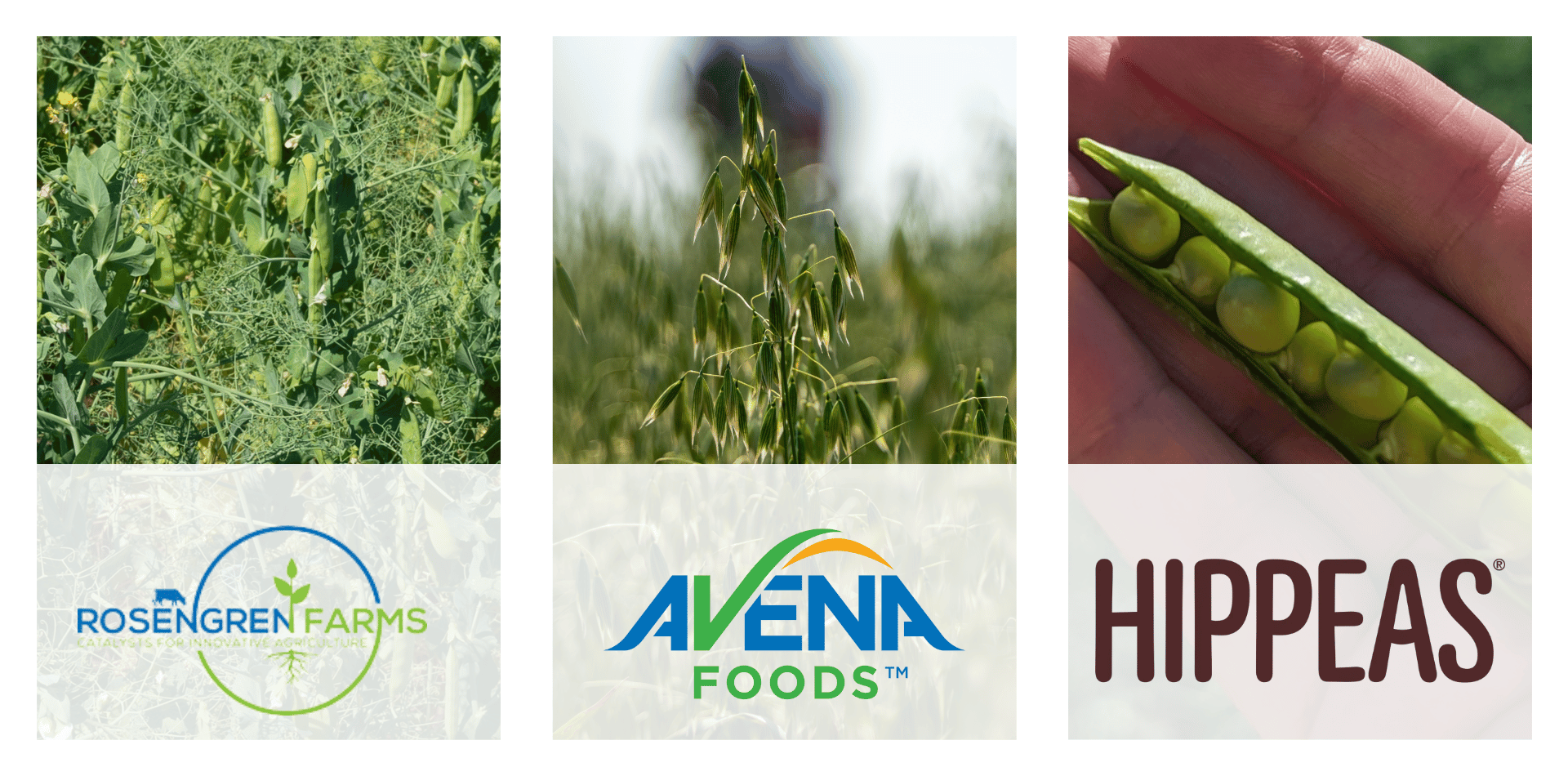Rosengren Farms ‘Living Lab’ Field Trial Update


A collaboration between Rosengren Farms, Hippeas and Avena Foods
Colin Rosengren presented a summary of the Rosengren Farms field trial supported by HIPPEAS and Avena at Avena’s third annual Customer and Farmer Appreciation Day on Aug. 2, 2023. This trial includes two intercropped fields. One is a mix of chickpeas and flax. The other is a canola/lentils/peas blend. Colin has been experimenting with intercropping since 2004.
Colin reiterated Regan’s point that intercropping can look very different from one field to another. “Our area is a little bit drier than Willmar Farms so where Willmar is putting peas on high areas because their low areas are too wet, we’re putting them in low areas because our high areas are too dry,” Colin said of the canola, lentil and pea intercropping field.
Colin said that they use a variety of agronomic practices to tweak the intercrops to get the best results. “We’ve done peas with canola every year for 19 years so we’ve played with a lot of rates and timing and can steer it quite a bit,” he said. Some of the tools they use include adapting the rates, depth and timing of seeding which alters fertility rates and the timing of chemical applications.
In their flax and chickpea mixed crop, Rosengren Farms paired alternate double rows of flax with chickpeas. Colin said they find these plants do well in this combination. Flax doesn’t scavenge nutrients well, but chickpeas do.
“We grew this crop with no nitrogen fertilizer and oftentimes we’ve used no phosphorus on this combination either,” he reported. When planted side-by-side this way, the two transfer nutrients through the microbiome of the shared root system. Flax is able to access phosphorus from the chickpeas.
“We have had virtually no disease issues to be concerned about in this crop. In fact, we anticipate this is likely one of our best crops this year,” added Colin. Disease is often a major concern with chickpeas and intercropping reduces this.
“If we can increase our yield and reduce our inputs, it’s not only environmentally better and more sustainable, but it is economically better for us as well,” he said, adding that Rosengren Farms will continue to experiment with these novel practices.
“We’re in this for the long term. We’re a third-generation farm right now that’s approaching 100 years in operation, and we have a 100-year plan for the future as well.” Colin emphasized that productivity increases go hand-in-hand with soil health.


Wherever you may be in your sustainability journey, our team is ready to connect, share and explore opportunities to partner.
Contact us to learn about Avena’s journey.
contact us today
Partnering for safe, healthy diets and a sustainable world.